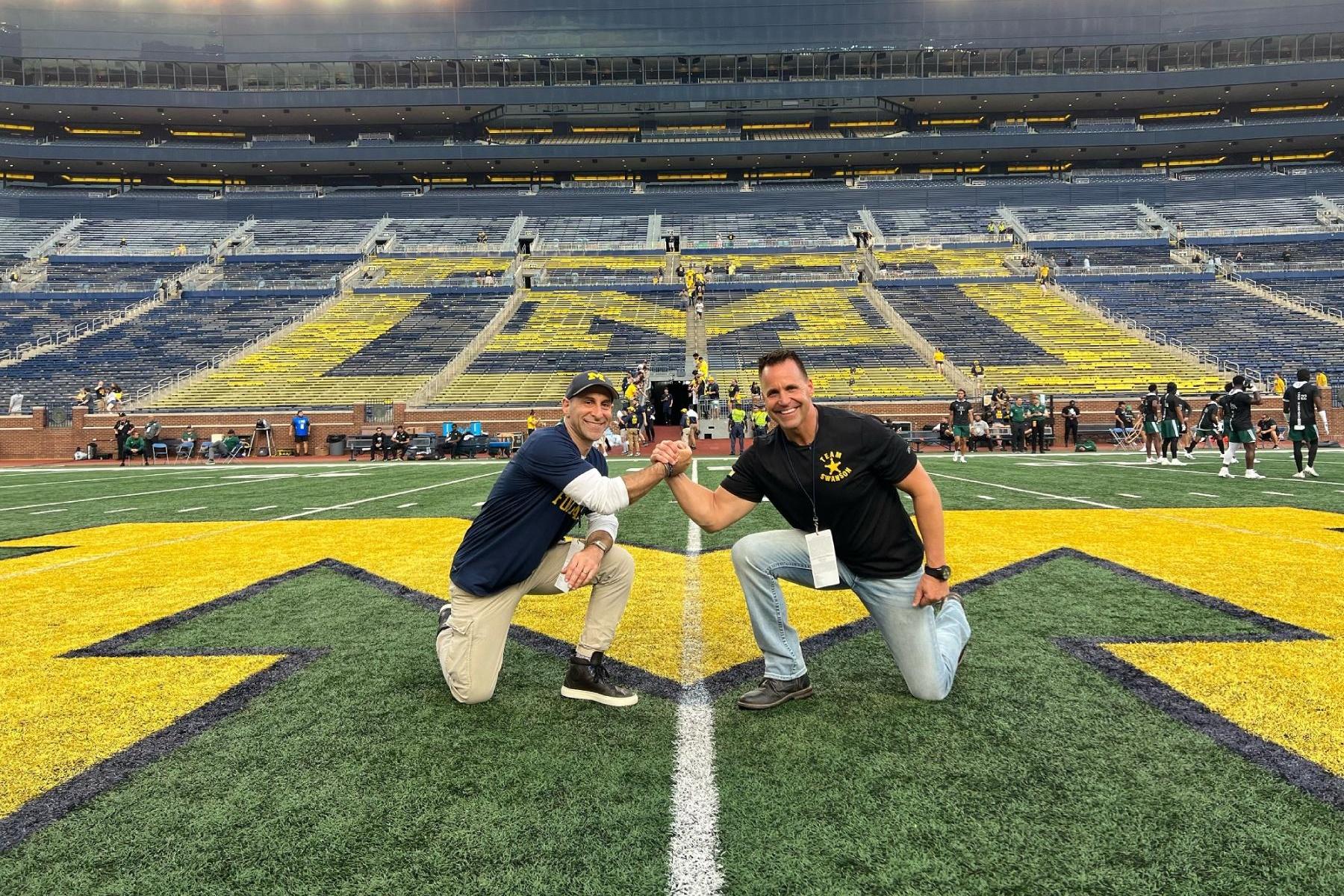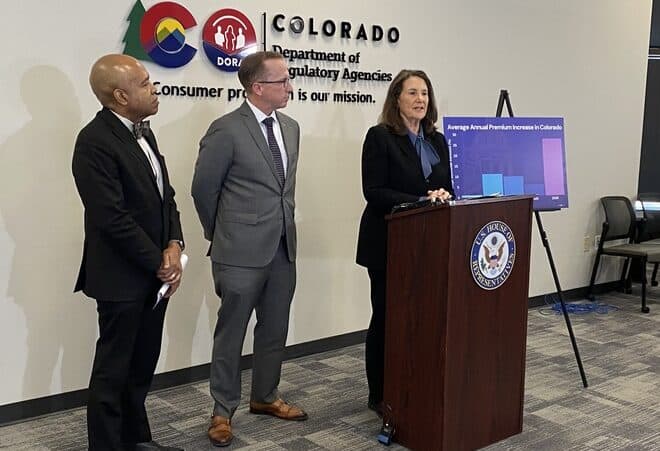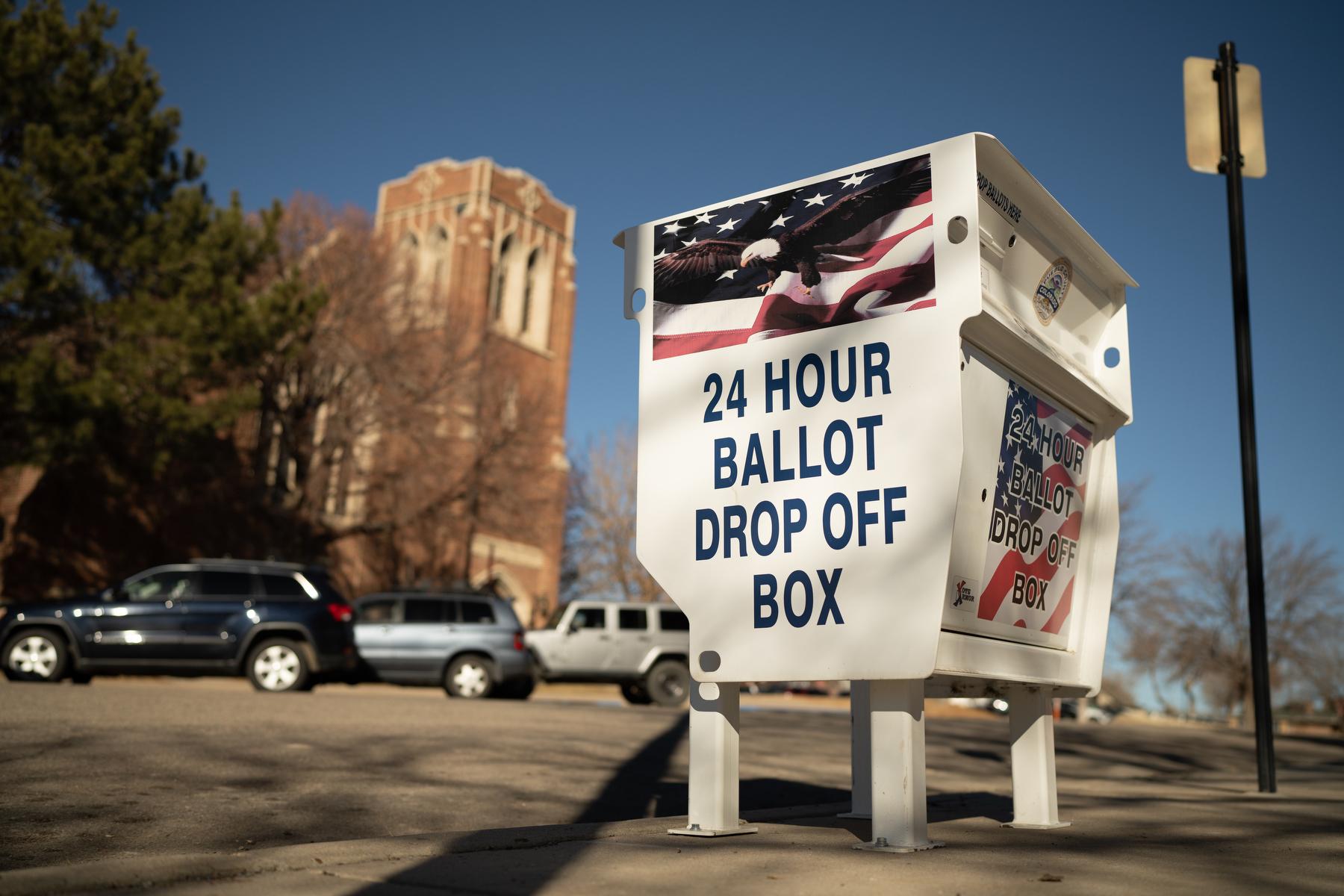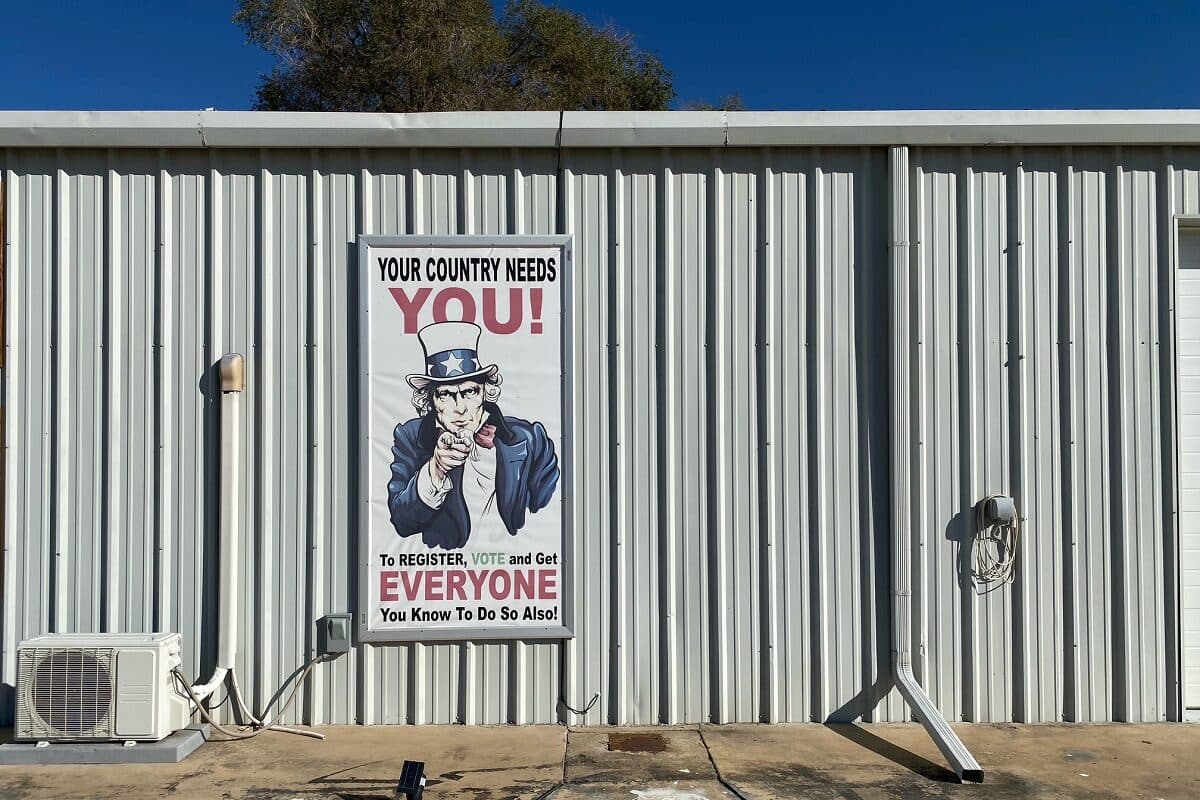KRCC News sent detailed surveys about some of the most critical issues facing city leaders to the candidates running for Pueblo City Council. Here's how District 1 candidate Dianne Danti responded, in her own words.
What is your elevator pitch for why you are running, and why someone should vote for you?
I’m running because Pueblo deserves leadership that listens, collaborates, and delivers real results. I attend City Council meetings every week and have seen too much division and not enough accountability, and I want to change that. My priorities are transparency, responsible spending, and practical solutions that improve life for everyone, such as repairing roads, enhancing public safety, addressing homelessness, and maintaining a transparent budget guided by compassion and common sense.
We can create a cleaner, safer Pueblo while connecting people to the help and resources they need. I put people over politics and rely on data, not personal agendas, to make decisions. If you want a leader who listens, asks tough questions, and puts Pueblo’s residents first, I’d be honored to earn your vote.
What are the three biggest issues facing Pueblo that you want to address, and how do you plan on addressing them?
Repairing neighborhood roads, addressing homelessness and maintaining a transparent budget.
Pueblo consistently has higher unemployment rates and lower average wages than other larger Colorado cities. What would you do to change this?
Pueblo has incredible potential, but for too long we’ve relied on the same strategies that haven’t delivered higher wages or enough good jobs. I would focus on attracting diverse industries that align with Pueblo’s strengths, such as clean energy, advanced manufacturing, food processing, and logistics.
We can utilize existing resources, such as the St. Charles Industrial Park and Pueblo Memorial Industrial Park, to recruit employers who offer stable, higher-paying jobs. At the same time, we should strengthen partnerships with CSU Pueblo, PCC and our trade programs to ensure residents have the skills these employers need.
I’ll also push for greater accountability in economic development; every incentive must produce measurable results in local hiring and wages. By combining transparency, workforce training, and innovative recruitment, we can create a stronger, more self-sustaining economy for Pueblo.
Although Pueblo’s housing costs are lower than in the large metropolitan areas to the north, many residents still struggle to make ends meet. What solutions do you have in mind to solve this?
Even though Pueblo’s housing costs are lower than in larger cities, wages haven’t kept pace, and too many families are struggling to make ends meet. We need a balanced approach that increases housing supply, supports working families, and protects neighborhoods.
I’d work to streamline the permitting process for infill and workforce housing, so we can revitalize vacant lots and underutilized properties without displacing people. We also need to partner with nonprofits and developers to create mixed-income housing options and expand homeownership opportunities.
At the same time, we must ensure that our zoning and infrastructure decisions align with smart growth, so that new development fits our community’s character and resources. When people have safe, affordable places to live, they can focus on work, education, and raising their families, which in turn strengthens the entire community of Pueblo.
There’s been a lot of concern by the public about the cost of the city’s purchase and remodeling of the Professional Bull Riders office building at 101 Riverwalk Place. What is your position on this?
The city needed a larger space for its employees, as departments had been scattered across hundreds of buildings throughout Pueblo. However, there was a lack of foresight when the Dittmar building was purchased—it was already too small to meet the city’s long-term needs.
The purchase of the Professional Bull Riders building raised serious concerns about transparency and fiscal responsibility. According to emails and sale documents obtained by the Pueblo Chieftain, the company selling the building began negotiating with the city even before it officially purchased the property on January 31. The city ultimately approved a $7 million purchase, $1 million more than what “101 W. Riverwalk LLC” paid for it, after the council voted 5–2 to move forward with the deal on March 10, with the sale scheduled to close by May 1.
While the need for a consolidated workspace is understandable, the process and price have raised legitimate public concerns. Going forward, we need stronger long-term facility planning, competitive purchasing practices, and complete transparency so taxpayers can trust that major financial decisions are made in Pueblo’s best interest.
What is your perception of the relationship between the council and the mayor, and how should the two bodies work together?
The relationship between the council and the mayor has often been strained, and that tension has slowed progress on important issues. Pueblo’s residents deserve a city government that works together, not one divided by personal or political differences.
Both the council and the mayor share the same responsibility: to serve the people of Pueblo. That means building mutual respect and open communication. We can strengthen collaboration through joint budget planning sessions, regular policy workshops, and clear performance goals for major projects. These steps help ensure that decisions are based on data, transparency, and long-term benefits, rather than short-term disagreements.
When we focus on accountability and outcomes rather than personalities, we can restore trust, improve efficiency, and deliver the results our community deserves.
Answer the following questions with either a "Yes" or a "No" as if you were filling out the ballot. You will have the opportunity to elaborate on each answer.
2A: City ot Pueblo Sales and Use Tax Increase for the General Fund: No
The newly elected councilors should undertake a thorough review of the city’s budget to grasp its financial framework. Currently, millions of dollars tied to completed projects remain unreturned to their original accounts. By reallocating these funds, the city can address urgent priorities—such as repairing deteriorating neighborhood streets, upgrading critical public infrastructure, or supporting community programs that enhance residents’ quality of life without resorting to new taxes.
Imposing additional taxes would place a disproportionate and burdensome strain on low-income residents, who often live paycheck to paycheck and lack the financial flexibility to absorb increased costs. Higher taxes could force these households to cut back on essentials like food, housing, or healthcare, exacerbating economic hardship and deepening inequality. For small businesses, new taxes could reduce profitability, limit job creation, and deter local investment, ultimately impacting low-income workers who rely on these opportunities. This approach risks slowing the city’s economic recovery and vitality while unfairly penalizing those least equipped to bear the burden. Redirecting existing funds, however, represents a prudent and equitable use of resources, demonstrating fiscal responsibility and respect for all taxpayers, particularly those with limited means.
Furthermore, partnering with local non-profits can help fill critical service gaps that the city cannot address due to budgetary or logistical constraints. These organizations can deliver targeted support, such as community outreach, social services, or youth programs, complementing municipal efforts. A thorough budget review will ensure these resources are allocated to areas of greatest need, fostering community well-being, sustainable progress, and economic stability while avoiding the regressive impacts of new taxation on low-income residents.
2B: Extension of the one-half cent sales tax for economic development: No
The decision to place the tax criteria on the ballot was premature and risks destabilizing Pueblo’s economic strategy. The mayor’s plan to terminate PEDCO’s contract by year-end, despite the tax extending through 2026, introduces significant uncertainty. Concurrently, the city is conducting a Request for Qualifications (RFQ) process to either select a new organization to replace PEDCO or renegotiate its contract, but the outcome remains unclear. Amending the tax criteria before resolving these critical uncertainties could lead to misaligned priorities, inefficient resource allocation, and eroded public trust. Instead, any changes to the tax’s scope should be deferred until the RFQ process is complete and the future of economic development leadership is clearly defined.
Presenting these changes on the 2026 voter ballot would ensure transparency, allowing Pueblo’s residents to evaluate a fully developed plan informed by the RFQ’s outcome. By adopting a deliberate and strategic approach, Pueblo can expand the tax’s scope to meet emerging economic needs while preserving its core mission of fostering sustainable growth. For instance, allocating funds to infrastructure upgrades, such as modernizing utilities to support new industries, or investing in workforce development programs could amplify the tax’s impact.
Additionally, partnering with local non-profits can help address service gaps, such as affordable housing, community health initiatives, or youth education programs, that complement economic development efforts but fall outside the city’s current capacity. This approach avoids the pitfalls of hasty decisions, which could lead to squandered resources or inequitable outcomes, particularly for low-income residents who rely on stable economic opportunities. A transparent, well-planned process will position Pueblo to maximize the tax’s benefits, driving inclusive growth, attracting innovative industries, and ensuring economic prosperity for all residents while maintaining fiscal discipline and public confidence.
2C: Charter Amendment- Change form of government to Council-Manager: No
I do not support Measure 2C. Pueblo needs more transparency and accountability—not less. Returning to a city manager system would take power away from voters and give it to City Council by replacing an elected mayor with an appointed administrator. This would weaken direct accountability and make the city government less responsive to residents’ concerns. Rather than restructuring government, we should strengthen communication, collaboration, and efficiency within our existing system.
Pueblo’s challenges will not be solved by changing titles — they’ll be solved by leadership that listens, engages the community, and makes data-driven decisions. Under the current mayor — council structure, voters choose who leads and can hold them accountable at the ballot box. Pueblo adopted this system to give residents a stronger voice in local government. Reverting to a city manager model would undo that progress and diminish voter power. The solution isn’t removing the mayor — it’s electing leaders who listen, collaborate, and put Pueblo’s people first.
2D: Charter Amendment: Require binding interest arbitration instead of vote of the people for the other classified employee bargaining unit: Yes
To ensure fair negotiations for city classified employees, I would propose requiring binding interest arbitration instead of public votes for their bargaining unit. Currently, these essential workers, like maintenance and janitorial, lack bargaining power, and even cost-of-living raises require voter approval, delaying critical compensation adjustments.
Binding arbitration would allow an impartial arbitrator to resolve disputes by evaluating proposals, local economic conditions, and employees’ contributions, delivering timely, binding decisions. This streamlines negotiations, avoids politicized referendums, and protects low- and middle-income workers from stagnant wages amid rising costs. Arbitration would boost morale, reduce turnover, and ensure reliable municipal services. This reform promotes equity, fiscal responsibility, and stronger public services for Pueblo.
2E: Charter Amendment: Municipal Officer Salary Increase: No
The ballot proposal to amend Pueblo’s city charter, allowing City Council members to grant themselves immediate salary increases, undermines fiscal responsibility and erodes public trust. The current charter prevents councilors from raising their own pay during their term, ensuring transparency and voter oversight. This change would enable instant raises, diverting unbudgeted funds from critical priorities like repairing neighborhood streets, upgrading infrastructure, or supporting community programs.
For low-income residents grappling with rising costs, this self-serving decision feels like a betrayal. Any salary adjustments should be proposed transparently during budget planning, included in the next year’s budget, and subject to public input to avoid conflicts of interest. Instead of prioritizing personal gain, councilors should reallocate funds to urgent needs and partner with non-profits for services like affordable housing. Vote no to reject this reckless amendment, demand accountability, and ensure Pueblo’s resources serve its residents, not the council’s self-interest.
2F: Charter Amendment: Making it easier for City Employees to run for Public Office: Yes
This fair reform lets dedicated staff seek office while safeguarding integrity. Public employees bring essential expertise: hands-on budget management, service delivery, and problem-solving that enriches City Council.
Mandate resignation upon winning to avoid conflicts, like influencing former departments. During campaigns, ban the use of city resources, enforce recusals, and require disclosures; ethics boards can oversee compliance. It expands qualified candidates, enhances democracy, and boosts voter choices without risking abuse. Excluding insiders wastes talent. Vote yes for inclusive, experienced leadership in Pueblo.







